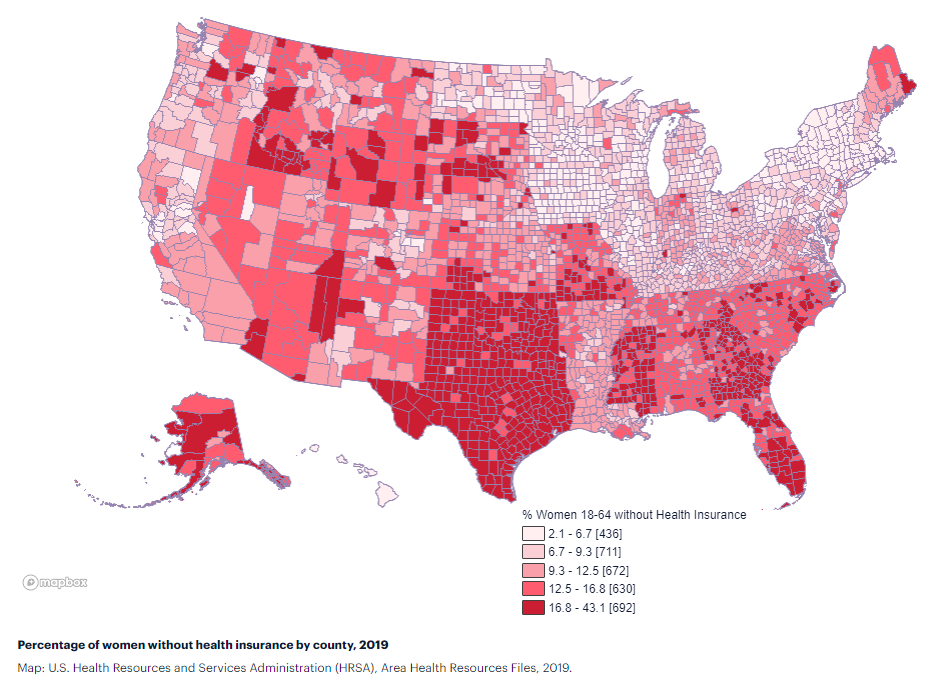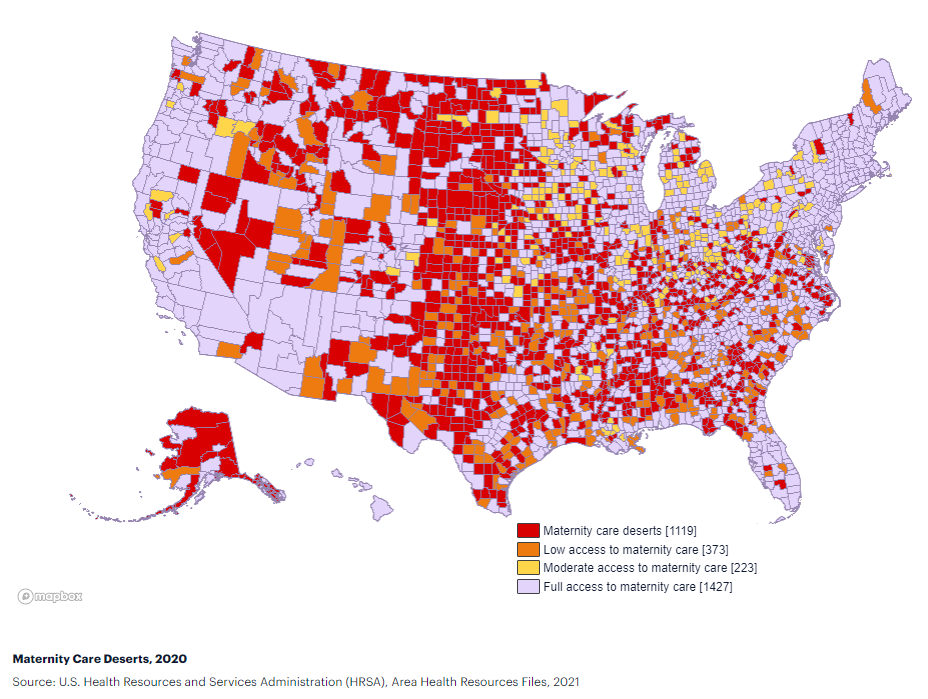
Report: Maternal Healthcare Runs Dry in Maternity Care Deserts
Maternity care deserts make up 36% of all US counties, according a 2022 March of Dimes report.
These maternity care deserts contribute to the US having the highest maternal mortality rate among developed countries, as they make it significantly harder for women to get the care they need.
Let’s explore how maternity care deserts affect women’s health, especially for Latinas, who already face inequities that limit healthcare access.
Defining Access to Maternity Care
The March of Dimes report defines a maternity care desert as any county without a hospital or birth center offering obstetric (OB) care and without any OB providers, such as obstetrician/gynecologists and certified nurse midwives/certified midwives.
Report’s Key Findings on Maternity Care Deserts
As mentioned earlier, 36% of US counties are maternity care deserts.
More than 2.2 million women of childbearing age live in these areas with no access to OB care.
Despite a lack of maternal healthcare, more than 146,000 babies were born in maternity care deserts since 2020.
Two-thirds of maternity care deserts are in rural counties, where 50% of women must travel greater than 30 minutes to reach an OB hospital, compared to 7% of women in urban areas.
Maternity care deserts scatter the US, but some states are worse than others, such as Texas, which has a 40.2% Latino population.
“Texas has some of the highest amounts of maternity care deserts in a state, and in fact, between our 2020 report and this year, Texas has actually gotten even worse, where there are 12 counties in the state of Texas that have actually gotten worse in terms of access to maternity care,” March of Dimes President and CEO Stacey Stewart told CNN.
Consequences of Maternity Care Deserts
Not having access to maternal healthcare puts pregnant women and their babies at risk.
For instance, receiving regular care while pregnant can help prevent or manage complications, such as mental health disorders – the leading underlying cause of maternal mortality in Latinas, and gestational diabetes – of which Latinas are 2 to 4 times more likely to develop during pregnancy than non-Latinas.
Further, babies of mothers who do not get prenatal care are three times more likely to have a low birth weight and five times more likely to die than those born to mothers who do get care.
Considering Latinas already face health inequities, such as lack of access to nutritional food and health insurance, and sky-high maternal mortality rates due to the COVID-19 pandemic, living in a maternity care desert can make maternal health outcomes even worse.
Addressing Maternity Care Deserts
The ways that we can address maternity care deserts and alleviate their negative effects on women and babies has a lot to do with health insurance and how we approach maternal care in the US.
March of Dimes points to expanding Medicaid and extending Medicaid postpartum coverage to 12 months. These policy changes will help more women get affordable care across the nation, especially in maternity care deserts, where more women are likely to be uninsured.
For example, Texas has the highest uninsured rate and remains one of the 12 states that has not expanded Medicaid. As mentioned previously, Texas has some of the highest amount of maternity care deserts in the nation.

Providing greater access to telehealth can also help more women get care in rural areas, especially in the postpartum period for breastfeeding and lactation assistance and for postpartum depression.
Additionally, March of Dimes recommends expanding access to midwifery care and doulas. In the US, ob-gyns are the primary caregivers for pregnant women.
However, in many other countries where maternal mortality is lower, midwives and doulas outnumber ob-gyns and are the preferred healthcare provider when it comes to maternal health.
Considering the US has an overall shortage of maternity care providers relative to the number of births, policies that work toward a wider acceptance of midwives and doulas can be beneficial.
You Can Help Push for Health Equity for Latinas
Maternity deserts are just one health inequity facing Latinas and all women. Learn more about the baby formula shortage and the rising cost of childcare.
You can promote health equity by selecting your county and getting a Health Equity Report Card by Salud America! at UT Health San Antonio.
In your report card, you will see maps, data, and gauges to compare health equity issues, including access to healthcare and social vulnerability to COVID-19, to the rest of your state and nation.
You can email your Health Equity Report Card to local leaders to stimulate community change. Use the data in your materials or share on social media to raise awareness.
Get your Health Equity Report Card!
The post Report: Maternal Healthcare Runs Dry in Maternity Care Deserts appeared first on Salud America.


